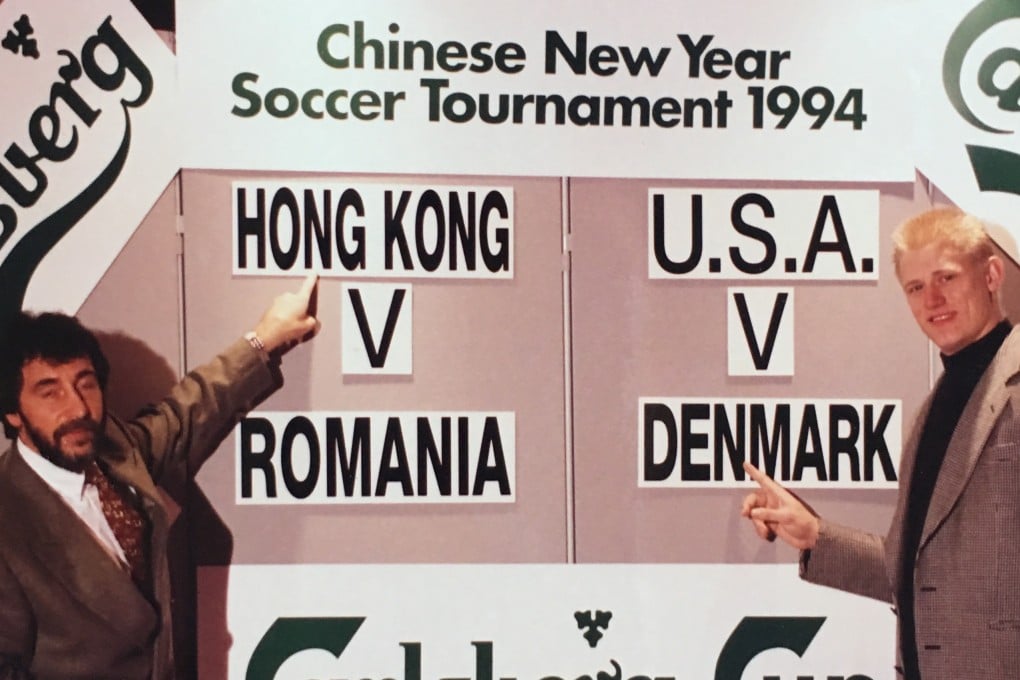Lunar New Year Cup: a history of stellar sides, superstars, sporting gestures and a royal wedding
- ‘Carlsberg Cup’ remembered for first bringing world class football to Hong Kong
- Stars like Hristo Stoichkov, Rene Higuita, Luis Hernandez and Peter Schmeichel all played in Hong Kong

It could not have happened without the driving force behind it – Derek Currie, one of the first overseas players who came to the city in 1970 after the game turned professional in Hong Kong.
Scotsman Currie would go on to play for the Hong Kong representative team in the Asian Cup qualifiers in 1979 after securing Hong Kong citizenship.
“After retiring myself in 1982, I joined Carlsberg and eventually became its public relations manager, which encompassed sport sponsorship,” said Currie, who played for Hong Kong Rangers before moving to heavyweights Seiko where he helped the club sweep all of the major titles.
“As a player, the tournament was always something to look forward to as it was a chance to compete against some the best clubs and players in the world.
“It also held special importance for local fans and even more if their representative side – be it the league XI or the national side – managed a win or two.”
Many big names appeared in the tournament during those years including Hristo Stoichkov, the former Barcelona and Bulgaria forward; Rene Higuita, the flamboyant Colombian goalkeeper; Mexico’s Luis Hernandez; Japan’s “King Kazu” Miura, who is still playing for J2 League side Yokohama at the age of 51; and all-time great shot-stopper Peter Schmeichel of Denmark and Premier League side Manchester United.